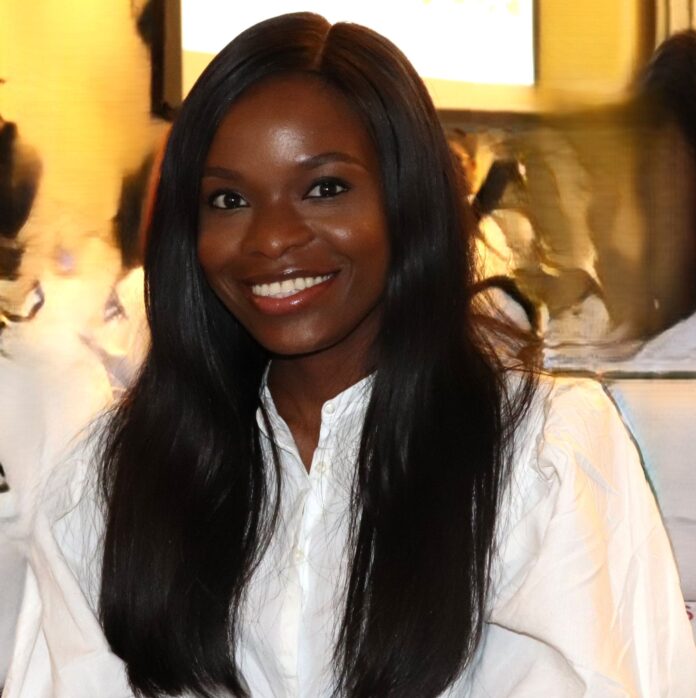As the world marks World Art Day, the focus turns to how creativity continues to bridge divides, and build connection. Across generations, Nigerians have expressed themselves through art, in song, rhythm, movement, and story.
Long before modern communication tools, creativity was the medium through which people taught, celebrated, and connected. In markets, family compounds, and town squares, art was language. It shaped understanding, transmitted values, and helped people make sense of their world.
That heritage remains alive, even in today’s complex society. As Ajemina Ogan, a creative campaigner and cultural practitioner, explains through her work, art is more than an aesthetic pursuit. It is a social force that brings people together, builds connection, and gives voice to those who are often unheard.
Through her leadership in participatory storytelling and community engagement, Ajemina has worked with people facing the realities of conflict, poverty, and exclusion. In many parts of Nigeria, women, children, and young people are left without platforms to influence decisions that shape their lives. Ajemina’s work has focused on changing that, using creativity as an entry point for dialogue, participation and inclusion.
During her time as a Programme Officer at ARDA Development Communication Inc (ARDA-DCI) in Lagos, she co-wrote and co-produced two radio dramas, Wake Daya (A Piece of Bean Can Spoil the Flour) and My Neighbour, My Friend, under the Community Initiatives to Promote Peace (CIPP) project. Both programmes were created through close collaboration with community members whose lived experiences shaped every detail of the stories. Ajemina and the ARDA team listened to local people’s accounts of daily life, relationships, and community dynamics, using those insights to build characters and settings that felt genuine and culturally grounded. The result was storytelling that was entertaining, educative, and deeply reflective of the people it represented.
The serial audio dramas reached millions of listeners across Nigeria. Rooted in local humour and everyday experience, they captured the complexities of community life and invited audiences to consider peace, justice, and coexistence in new ways. The storylines encouraged people to think carefully about the choices they made in difficult moments, to seek more constructive ways of resolving differences, and to value communication over confrontation. The dramas also explored women’s leadership in peacebuilding, encouraging their participation in local dialogue and decision-making.
The broadcasts inspired thoughtful discussion among listeners. During the live call-in segments, listeners shared how the stories prompted them to pause, see situations from new perspectives, and recognise their shared responsibility for sustaining peace within their communities
Ajemina’s leadership extended beyond production. She played a key role in supporting ARDA’s field teams to establish women’s discussion groups that gathered to listen and reflect on each episode. These groups became creative spaces where women, once excluded from leading peacebuilding discussions, began creating and sharing peacebuilding content of their own, including composing songs and performing short dramas. The women shifted from being listeners to becoming cultural producers, using creativity and art forms to claim space and share their perspectives.
For Ajemina, these outcomes show how participatory art can open the door to reflection, conversation, and self-expression. “When people see themselves in stories, they begin to believe in their power to create change,” she says. “Art can help people who have never been listened to find their voice and take their place in shaping society.
Her work illustrates how creative expression can complement formal peacebuilding efforts by opening new pathways for conversation and shared learning. In places where education levels or language barriers might prevent people from engaging in public discussions, art becomes a common space for connection. Whether through radio storytelling, music, or theatre, it allows people to express what is often difficult to say.
The lessons from these peacebuilding audio dramas also point to a wider truth that creativity can be a catalyst for progress across society. When art is valued as a collective practice, it strengthens mutual learning, inclusion and belonging.
For Ajemina, the potential of Nigeria’s creative sector extends far beyond entertainment. She believes art should not be reserved for a few. It must be nurtured in schools and made accessible across communities, not just in elite spaces. Strengthening creative participation at community level helps people feel connected, capable, and proud of their cultural identity.
She calls for a more intentional national effort to support art as part of everyday life, to fund community-led initiatives, build partnerships between artists and schools, and create local opportunities for participation and expression. Such approaches can build stronger cohesion, renew pride in cultural heritage, and enable more people to contribute their voices to social progress.
As the world celebrates World Art Day, Ajemina’s work offers a powerful reminder of what art can achieve when it is shared and owned by communities. It heals divisions, restores confidence, and strengthens the bonds that hold societies together. In her words, “Art helps us see each other clearly, and that is where peace begins.








